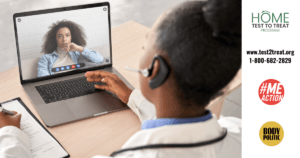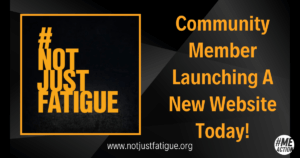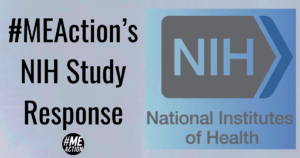Parliament Plays NICE
#MEAction UK was thrilled to watch the longest ever UK parliamentary debate about ME on 21st June, after working so hard alongside so many others to make it happen.
The three hour debate in Westminster Hall about treatment and research reflected a seismic shift in political understanding of ME. It was an historic day for people with ME in the UK and around the world.
MPs slammed the PACE trial and the NICE guidelines, called for biomedical research and decried the decades of abuse people with ME have faced here in the UK.
Sir Edward Davey called for an immediate halt to graded exercise therapy (GET) to ensure that patients aren’t harmed between now and October 2020.
He asked: “Should not graded exercise therapy be removed as a treatment option even before the NICE guidelines are reviewed, given the evidence that people are being harmed by it?.. Is there not a possibility that in future a court could compensate ME sufferers if they continue to be prescribed GET, given that we, the Minister and medical professionals know the evidence?”
Immediate Suspension of GET and CBT
#MEAction demands an immediate end to the use of GET and CBT. We applaud the work Invest in ME has already done in this area.
Recent comments by NICE in a BBC article suggest they may be willing to take action in this area before the new guidelines are finished:
A NICE spokesman said: “We do recognise the controversy about the currently-recommended treatments and will discuss with the expert committee, once appointed, before deciding on any action prior to the completion of the new guideline.”
However, the harm needs to stop now. An interim warning must be added to the current guidelines, covering the time until the new guideline is published, stating that GET and CBT should not be used. Furthermore, this message must be disseminated to all GPs and health and social care professionals, including in the Department of Work and Pensions (DWP).
Second Draft Scope for New NICE guidelines
Just as ME was being discussed in Westminster Hall, the second draft scope for the ‘ME/CFS NICE Guideline’ was released, along with the Equality Impact Assessment. All stakeholders have been asked to give a written response before the 26th July.
The scope is a document which provides the framework for the new guidelines; and providing feedback about the scope is one of the best ways in which stakeholders can influence those guidelines.
The title of our report about the last scoping workshop was ‘Listened to, but were we heard?’ The answer to that now appears rather mixed.
#MEAction’s Initial Thoughts on the Second Draft Scope
Overall we see that some stakeholder input has been taken on board, but the draft remains worryingly inaccurate and does not reflect a scientific understanding of ME, retaining many omissions. We are not satisfied that NICE will consider the full range of scientific literature and that this may result in outdated and dangerous guidelines once again.
Slightly stronger language is now used to describe ME in the opening statement (‘Why the Guideline is Needed’), though it is still not nearly accurate enough. Recognition that patients are being pressured to participate in exercise programmes that lead to a worsening of symptoms was welcomed. We are also pleased to see an increased focus on education throughout, and the removal of managing comorbid conditions from the list of what areas that will not be covered.
We agree that it is crucial that children and the severely ill be given specific consideration but have concerns about how their voices will be fed into the new guidelines and how adequately their needs will be understood and addressed. NICE must put substantial work into prioritising the voices of severe patients and must address how they will make inputting accessible for those who are very ill.
Crucially, a disappointing emphasis on ‘fatigue’ suggests NICE fundamentally still don’t understand the basics of ME. Describing ME demands focus on the distinctive symptom of post-exertional malaise, described in modern diagnostic criteria as the cardinal feature of the disease. Additionally, NICE has not specifically included objective measures in the list of main outcomes of management strategies. Nor have they included harm as an outcome. This is of utmost importance as poor quality trials, such as PACE, are unblinded and rely primarily on subjective measures. This is deeply concerning to us, and will be a major focus in our response.
We also find the equality impact assessment to be embarrassingly lacking, and are shocked that we were not asked for input at the last scoping workshop. We were glad to see inequalities relating to ethnic origin and low income groups flagged. However, for other illnesses, ableism is considered specifically and we ask: why that was not deemed necessary for ME, given its history? We also wonder why gender (apart from for men) was not considered and note the absence of any reference to LGBT+.
Read the Second Draft Scope
Read the Equality Impact Assessment
What Now?
Our team will be looking at these two documents in much greater depth and writing our formal response in the coming weeks. As always, all community insight to support and inform this is greatly appreciated, so do email [email protected] with your thoughts by 17th July so we have time to incorporate them.
NICE are also using this period up until the 26th July to recruit members for the Guideline Development Group. It’s very important that people with ME who understand the context of this disease participate. Please consider applying if you are able! You can find out how to here.






8 thoughts on “What next for the NICE guidelines?”
Education on how severe M.E can be at medical schools
Removal of the term CFS (fatigue is not usually a primary symptom)
Parity with other serious neurological conditions.
Dedicated support nurses for home visits
Immediate removal of CBT and GET from NICE guidelines
Financial government support for research
Education of DWP assessors on the true nature of the illness
A massive public awareness campaign to stamp out the stigma and disbelieve
Closure of the so called treatment centres which in UK are usually psychiatrically led
.
Thank you to all for this significant step forward.
Shouldn’t other countries look to their own health care systems, and support of GET for ME, and act to inform medical professionals that GET is harmful for our community? In a February 13, 2016 letter, the former federal Health Minister, the Honourable Jane Philpott said: ” Additionally, the CIHR provided support for five systematic reviews on ME/CFS through the Cochrane Library. One of these reviews, entitled ‘Exercise therapy for chronic fatigue syndrome (individual patient data),’ is available at http://www.onlinelibrary.wiley.com/doi/10.1002/14651858.CD011040/full….”
CIHR is the research funding arm of Health Canada, the Canadian Institutes of Health Research.
It is encouraging to see the changes in the UK, and hope for appropriate and meaningful advances to come. I hope officials in other countries will act very soon to safeguard persons with ME from GET, and provide equitable research funding, and medical and public education about this life shattering organic disease.
Thank you very much to MEAction and all who have worked so hard to gain this progress.
I am probably misssing the point. I know you are trying to get the LGBT community involved in raising awareness of ME\CFS but what else does being LGBT have to do with ME/CFS in respect of the NICE guidelines?
Thanks for taking the time to respond. You raise a good question. I think, for us, we want to recognise that not every person has equal access to treatment and care (even the poor quality kind), and that there may be additional barriers to obtaining help for people who are marginalised for various reasons. Obviously, people with ME rarely get good treatment whatever their background or identity, but it’s possible that other factors (such as being trans or a refugee or a non-English speaker) may make this experience even more difficult. We don’t have any preconceived ideas about the answers here, but we’d at least like the questions to be asked.
I’d want acknowledged the double whammy of transphobia and sexism trans people face, specifically the dismissal of new symptoms all pwme face that can be amplified by the dignostic overshadowing of body dysmorphia (e.g. everything is put down to that and not properly explored) and the compounding of intersectional stigma. I also have concerns of some health professionals suggesting sexual orientation as a distressing factor that can contribute to the development of ME despite no evidence of this (though I do not know the extent to which this is or isn’t a problem). To see due diligence being done on all these factors would be very reassuring, unfortunately there’s no evidence of that from NICE.
Blanche Victoria Reeves has excellent points.
1. GPs need to be educated not to only follow NICE but use their initiative to help the individual. (I was refused an simple supplement that helps other M.E. sufferers because its not in the NICE guidelines but offered dangerous painkillers instead).
2. Remove Guided Exercises GET. (Put my M.E. back 6 months after being told I had to walk 2000 steps and I started falling down stairs from trying to get more than 50 steps an day and now see an rehab fall’s team).
3. Better Psychologist understanding. (Group CBT is just time wasting – need actual one to one help to understand this illness).
4. PIP and ESA benefits and DWP medicals and appeals need to also be educated.
5. Remove CFS from the illness. Its. M.E. myalgic encephalomyelitis. No one says M.S/CFS when M.S. also has Fatigue. (It lessens the illness. Its an nasty painful illness its not the flu it won’t go away in 2 weeks).
6. Stop putting M.E sufferers in the same catagory as Fibromyalgia. (I have both. M.E. is worse than Fibromyalgia. Each should be treated seperately). Stop adding on M.E. to other groups when having groups. Please give M.E. its rightful name and position in the medical field. (Sent to an Fibromyalgia group for exercise made my illness so ill I was unable to get out of bed for 2 months) .
The list is endless. Give M.E. the voice is deserved. People have suffered 40+ years and dying an slow and painful death with no understanding.
Gps and medical staff need training the uk needs more awarness. Only the other day my consultant said you need to exicise and suggested graded. I used to gym 3 times aweek before i got ill now if i do a long walk im wiped out the next day.
All the above are very good. I’d like to add persistent infections still not taken seriously by some medical professionals throughout the NHS. Sepsis major threat to me and my family, 3 with ME. No information from campaigns by Sepsis Trust, Jeremy Hunt and others still not taken into account as an emergency for A&E. List of classification for A&E depts does not include Sepsis, or other co-morbid symptoms of ME.
Latest Fiasco to get help for my daughter is still ongoing. I have been in MH wards with infections unrecognised and left untreated until I told them. Then treated but not openly admitted to by the hospitals. Also left without water to drink, a common practice in some MH wards it seems.
Other daughter left after daily calls to GP surgery and I had to insist after she told me 10 days later, a GP be sent out. She had serious infection, which she was asked to attend surgery with and to pad herself up and take a change of clothes. Impossible. Good job a GP went and diagnosed with an infection type that closes whole hospitals down. In short, physical symptoms are being ignored due to ME being classed as ‘All in the mind”. Serious consequences are numerous. TIA’s, strokes, heart problems and any other physical emergencies until they become emergencies. Hostility in the NHS is a major problem for pwME.
Comments are closed.